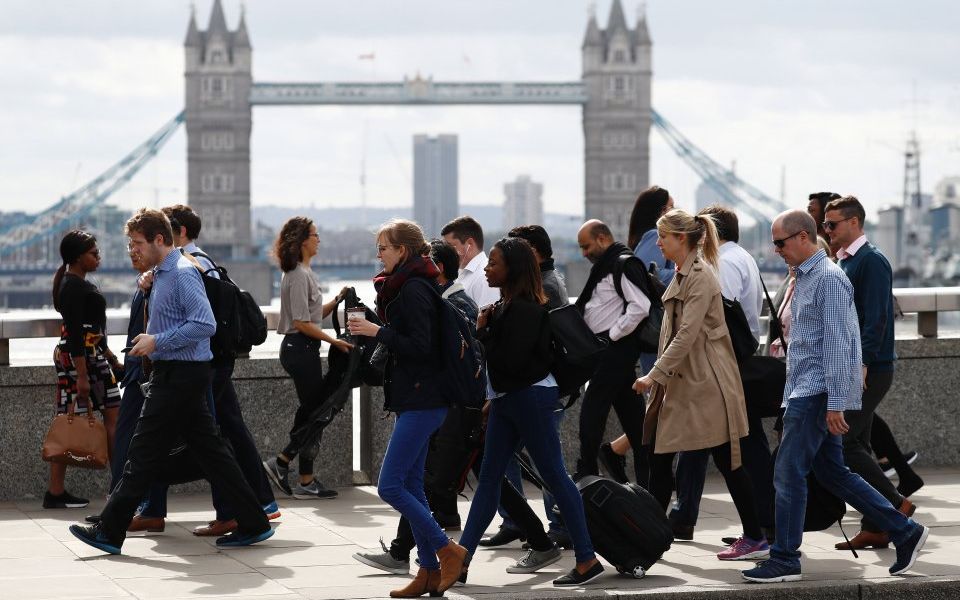UK wage growth accelerates at fastest rate since financial crisis

Employees received a bumper pay rise in the three months to the end of August, data from the Office for National Statistics (ONS) revealed today, showing wages have grown at their fastest rate since the financial crisis.
Employees’ average weekly earnings received a bumper year-on-year rise of 3.1 per cent excluding bonuses, or 2.7 per cent including bonuses, the ONS said.
However, inflation ate into the salary bumps, cutting wage growth in real terms back to 0.7 per cent excluding bonuses, or 0.4 per cent including bonuses.
Read more: End of austerity not 'compatible' with eliminating deficit says IFS
That saw staff earn weekly wages of £462 before tax accounting for inflation, up from £459 a week a year earlier.
The ONS said that weekly wages are still £11 below the pre-financial crisis peak of £473 per week in March 2008.
Sacha Chorley, portfolio manager of Quilters Investors, previously Old Mutual, called the wage growth "a welcome boost" before this month's Budget and "long, long overdue".
“We should not get too far ahead of ourselves," Chorley added. "Rising wages are welcome, but they are still only fractionally above inflation despite a tight labour market. Normally a shortage of available workers to fill positions would have been expected to push up wages before now.
“Looking at the knock-on benefits for businesses, the high street has come under pressure from a multitude of competing pressures in recent times. Pay running above inflation means consumer spending power receives a small boost, so at the margins this should provide a simultaneous benefit for the economy in terms of consumption growth."
Sarah Coles, personal finance analyst at Hargreaves Lansdown, added that wage growth has consistently beaten inflation since February.
“The news has raised hopes that the lowest unemployment figures for four decades are finally feeding through into higher pay," she added. "This is fuelling optimism that people will feel more confident about spending, which in turn could push dwindling retail spending higher, and raise the current low growth expectations."
The wage growth came as UK unemployment stayed at its lowest level since the mid-1970s over summer.
Employment figures between June and August stood at 32.4m, a year-on-year increase of 289,000 to account for 75.5 per cent of the population.
Britain’s unemployment rate stood at four per cent, its lowest since early 1975, equivalent to 1.36m people looking for work.
Read more: DUP will vote down Budget if Theresa May compromises in Brexit talks
However, the number of working age people not seeking jobs or not available to work increased, according to the ONS’s Labour Force Survey.
ONS head of labour market David Freeman said: “People’s regular monthly wage packets grew at their strongest rate in almost a decade but, allowing for inflation, the growth was much more subdued.
“The number of people in work remained at a near record high, while the unemployment rate was at its lowest since the mid-1970s.
“However, there was a notable uptick in the number of people who were neither working nor looking for a job, particularly among students.”